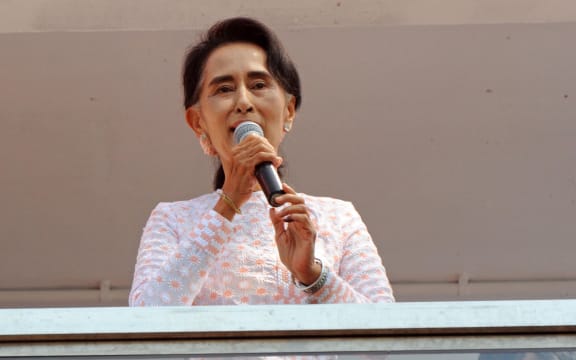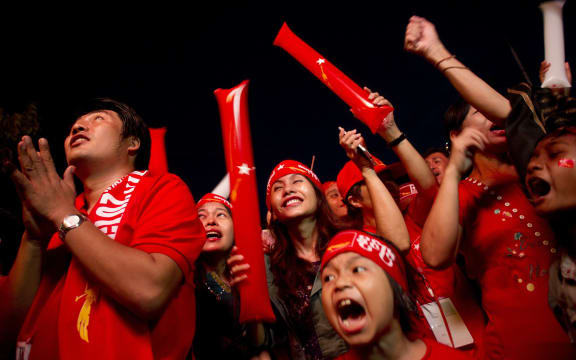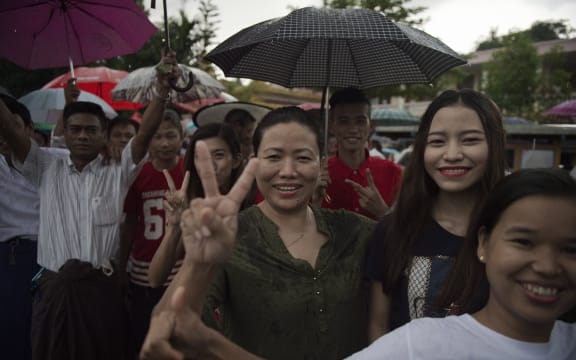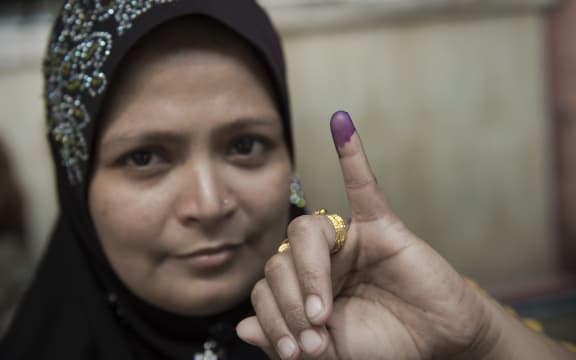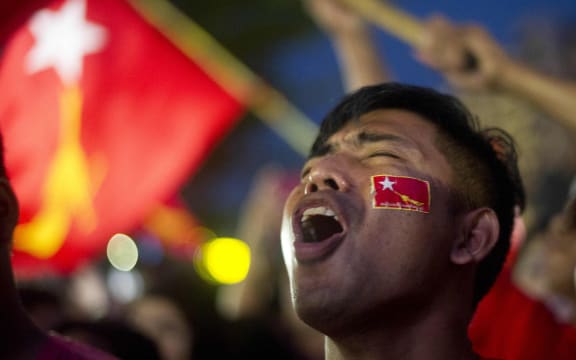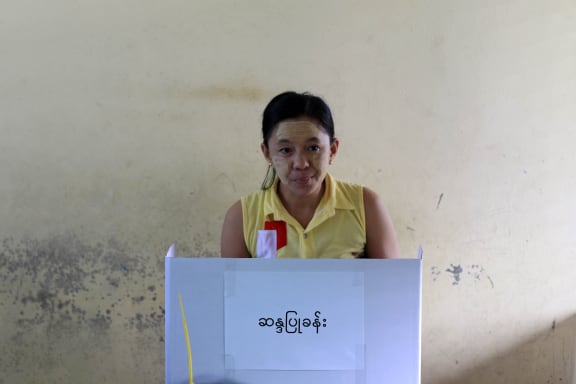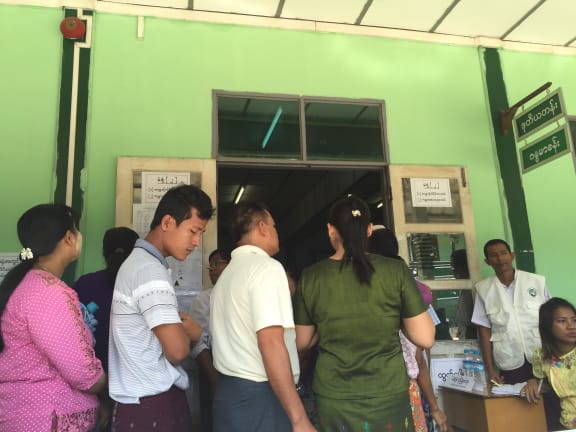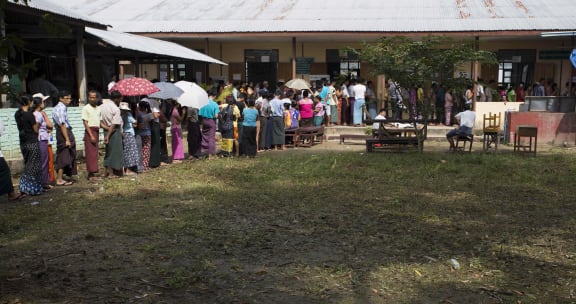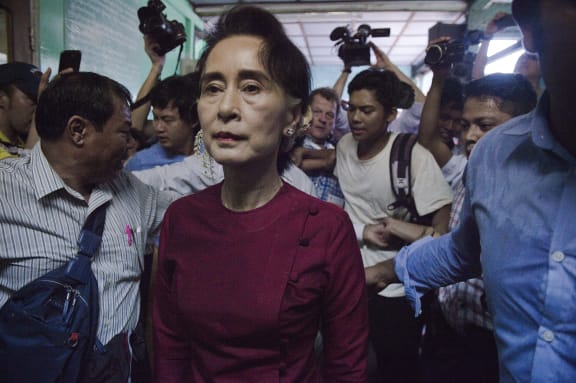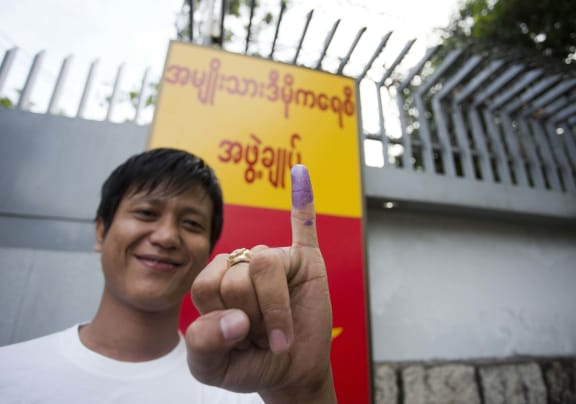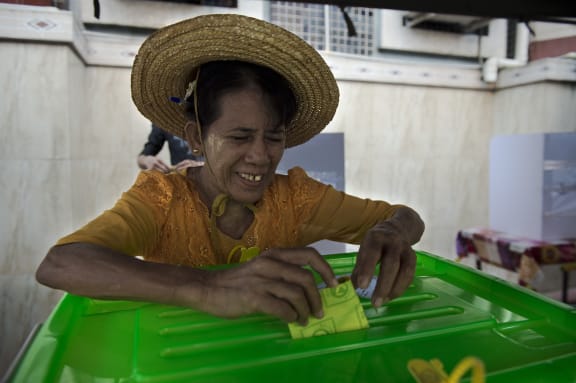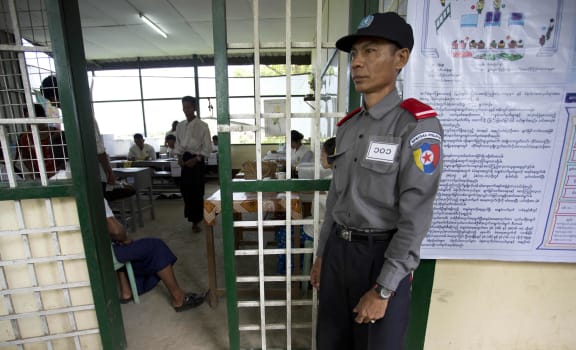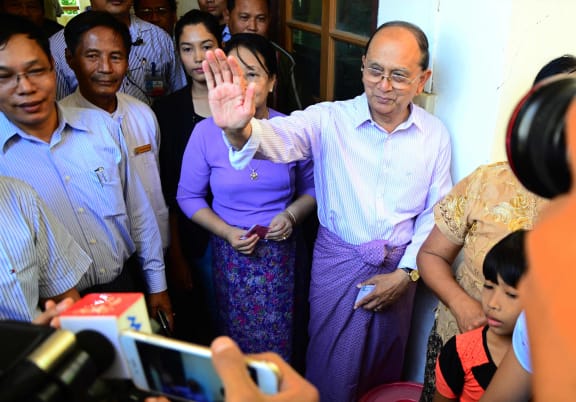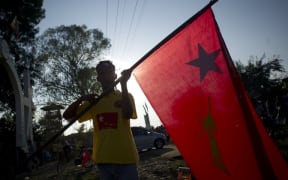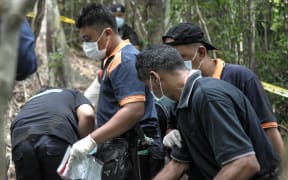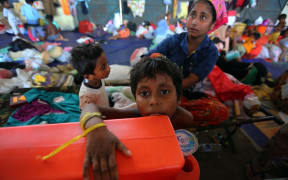Votes are being counted in Myanmar's first openly contested national election for 25 years.
Myanmar election
Turnout is thought to have been 80 percent in the poll - seen as a further big step away from decades of military rule.
Aung San Suu Kyi's National League for Democracy (NLD) is expected to win the most parliamentary seats, although she is barred from the presidency.
The military-backed Union Solidarity Development Party (USDP) has been in power since 2011.
Labour MP David Shearer - who is observing in Myanmar with National MP Mark Mitchell as part of a contingent from Australia and the European Union - told Morning Report the polling booths at the places they were sent to appeared to be pretty well managed.
"I've just got back from observing the counting of votes, and I don't know how it went for the rest of the country, but generally it seems to have gone reasonably well, certainly there wasn't any major upsets of violence."
Crowds of excited supporters appeared outside NLD headquarters in Yangon as darkness fell, apparently expecting to hear results. Instead a party official read out a message urging them to calmly wait at home.
The first official results are expected to be issued from 9am local time (4pm NZT) today.
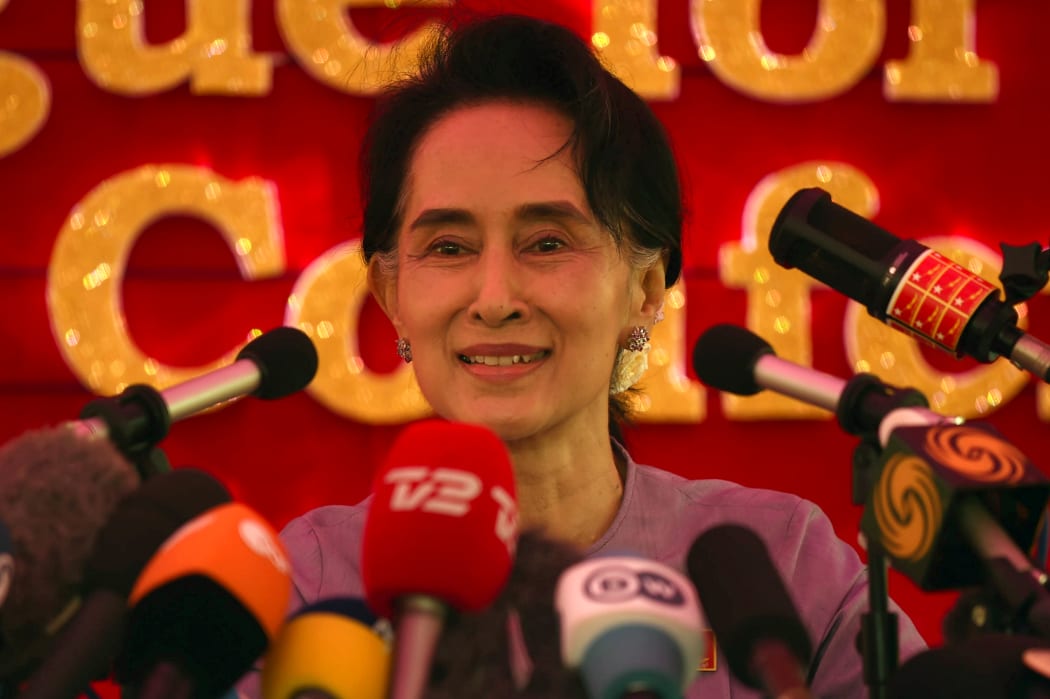
Myanmar opposition leader Aung San Suu Kyi and head of the National League for Democracy (NLD) speaks at a press conference from her residential compound in Yangon Photo: AFP
As polls opened on Sunday, long queues formed at some polling booths, with reports of people waiting from before dawn.
Smiling voters emerged after casting their ballots, some displaying fingers stained with purple - the official sign that they had voted.
"When I cast my vote I was very excited and so worried that I might do something wrong that my hands were shaking," said Kay Khine Soe, in Ms Suu Kyi's Kawhmu constituency.
Voting in Yangon, Wuhan Datong said: "I am 57 years old. I never participated in the previous voting since I had doubts over it. But the election this time is fair. So I have come to vote."
About 30 million people were eligible to vote in the election in Myanmar, also known as Burma.
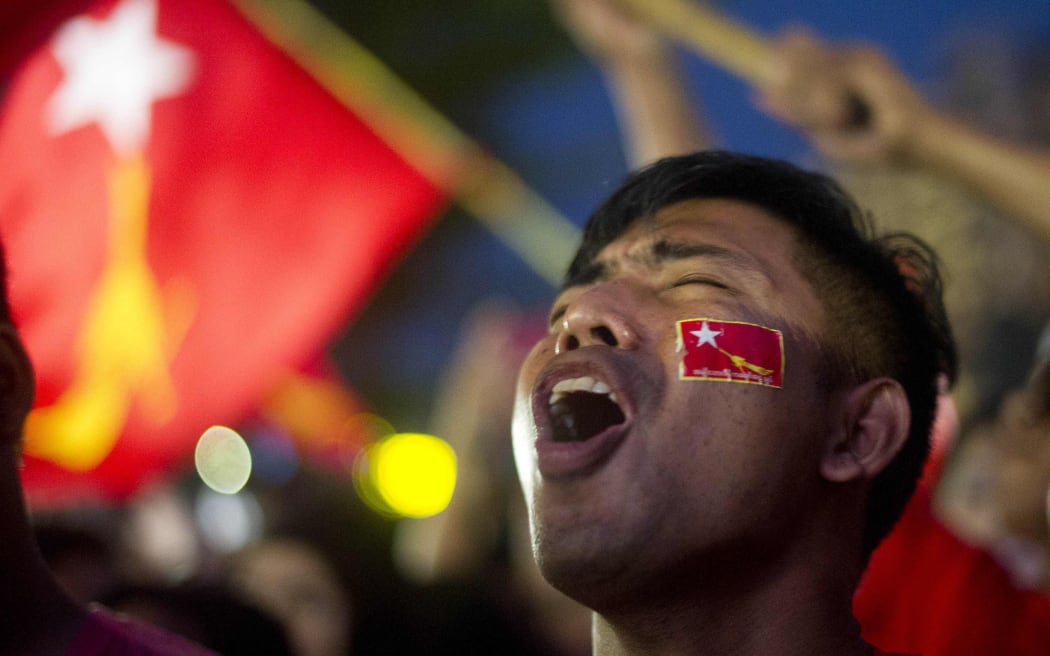
A supporter of Myanmar opposition leader Aung San Suu Kyi's party cheers as he watch a polling station count on a giant screen outside the party headquarters in Yangon. Photo: AFP
More than 6000 candidates from over 90 parties vied to be elected to the 664-seat parliament in the first national elections since a nominally civilian government took power in 2011.
However, 25 percent of seats are reserved for unelected military representatives, who are expected to side with the USDP.
Ms Suu Kyi, a former Nobel Peace Prize laureate, is barred from the presidency as the constitution disqualifies anyone with foreign offspring - her children are British.
The NLD must take 67 percent of all contested seats in order to gain a majority.
On Thursday, she said she would be "above the president" if her party won.
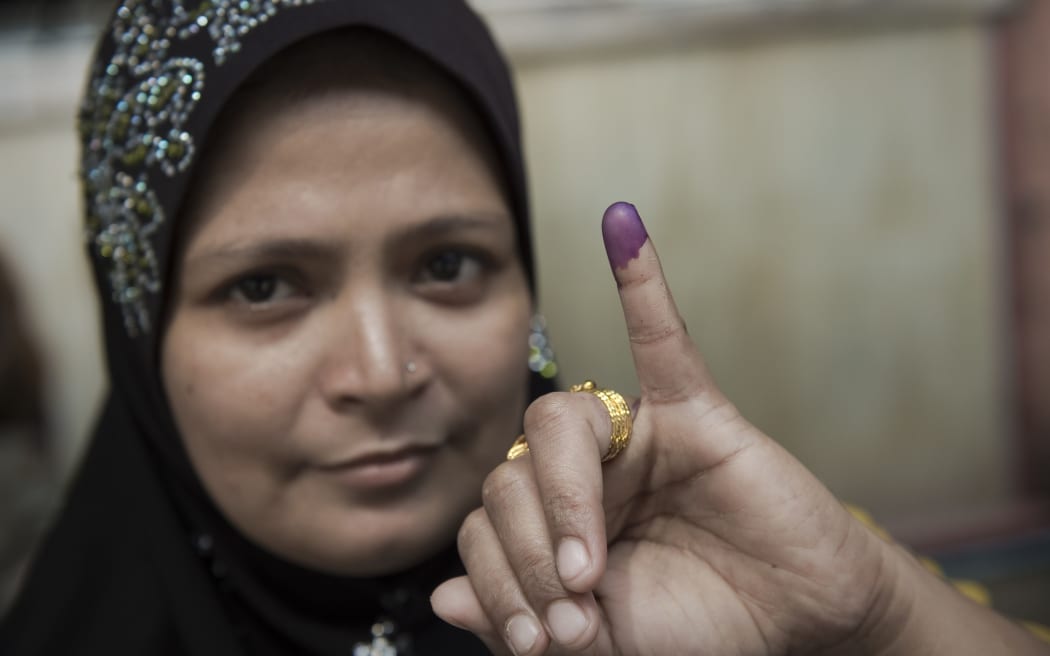
A Muslim Myanmar voter poses with her inked finger after she cast her vote at a polling station in Yangon. Photo: AFP
Current President Thein Sein said he would accept the election result. He cast his ballot at a school in the capital, Nay Pyi Taw, built in 2005 by the military.
Hundreds of thousands of people - including minority Rohingya Muslims - were denied voting rights, raising concerns about the fairness of the poll.
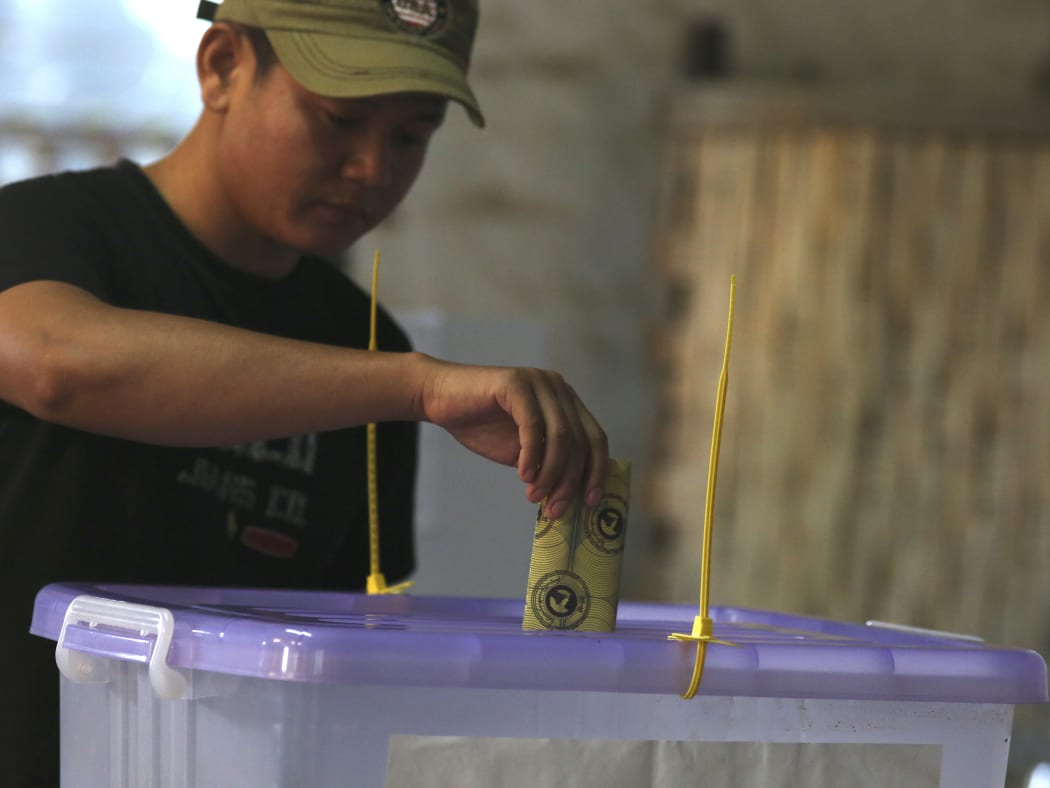
A voter casts his ballot at a polling station in Myanmar's Rakhine state. Photo: AFP
Ahead of the vote, security was stepped up across the country, with some 40,000 police guarding polling stations.
Ruled by the junta for nearly half a century, Myanmar has seen economic and political reform in recent years.
Ms Suu Kyi has already raised concerns about poll fraud and voting irregularities. In the 1990 election, the NLD won a majority, but the results were largely ignored by the generals.
For its part, the government has warned that rapid change could lead to civil unrest.
- BBC
